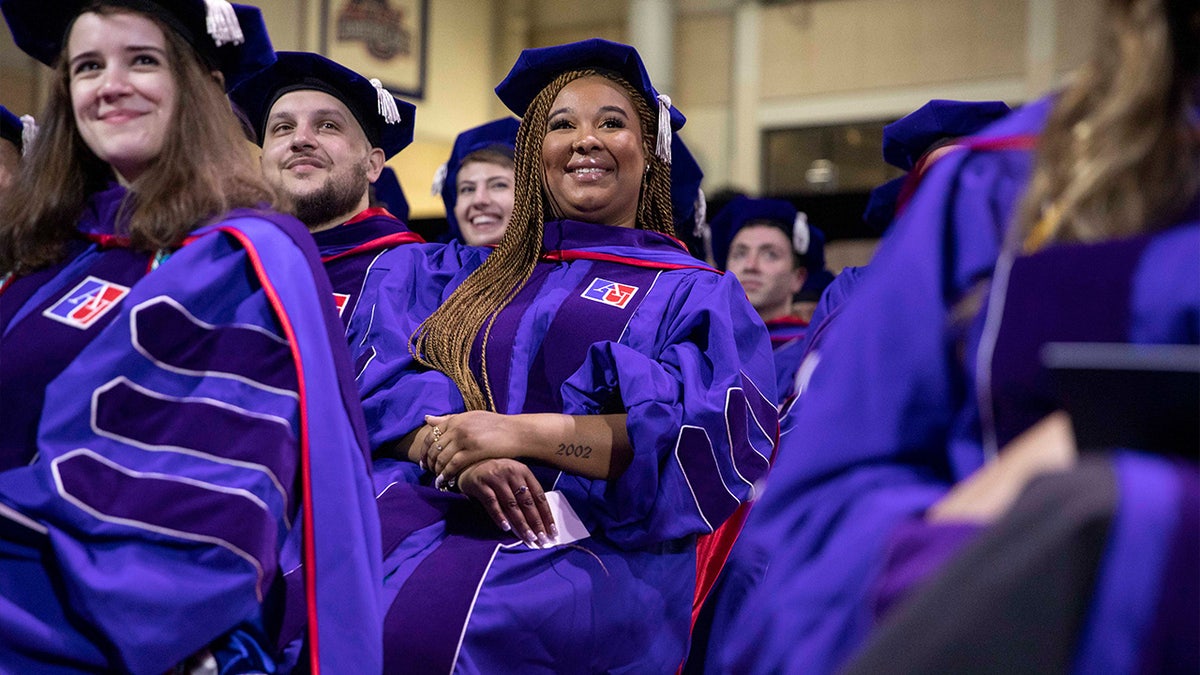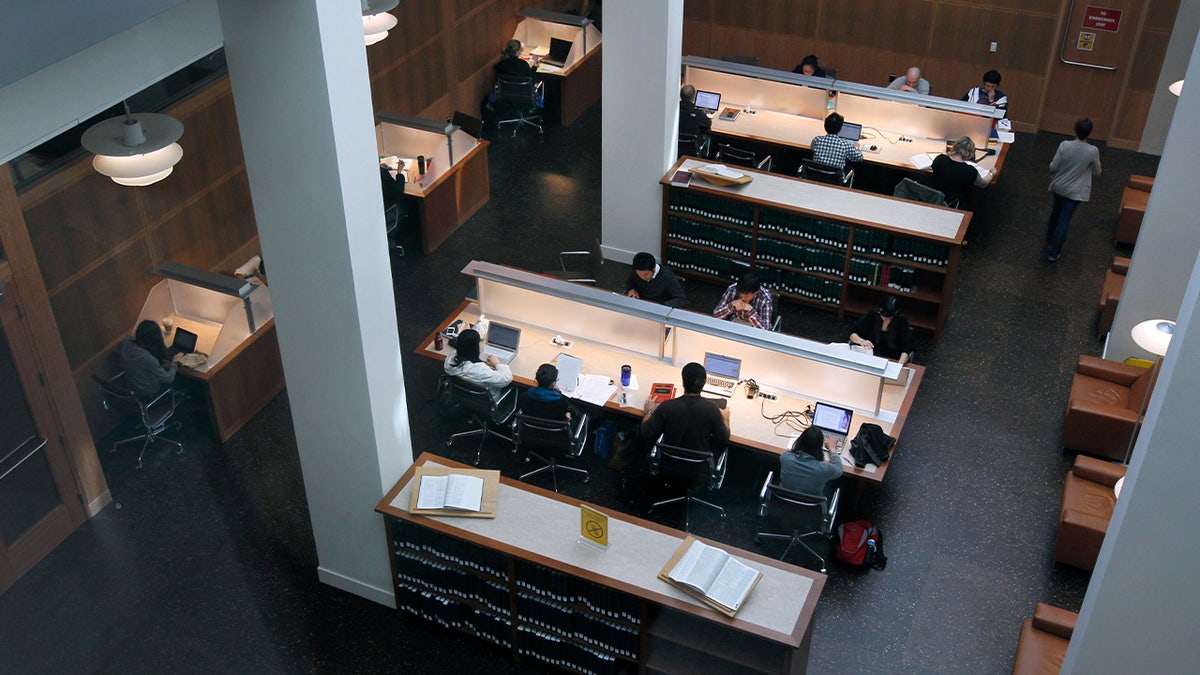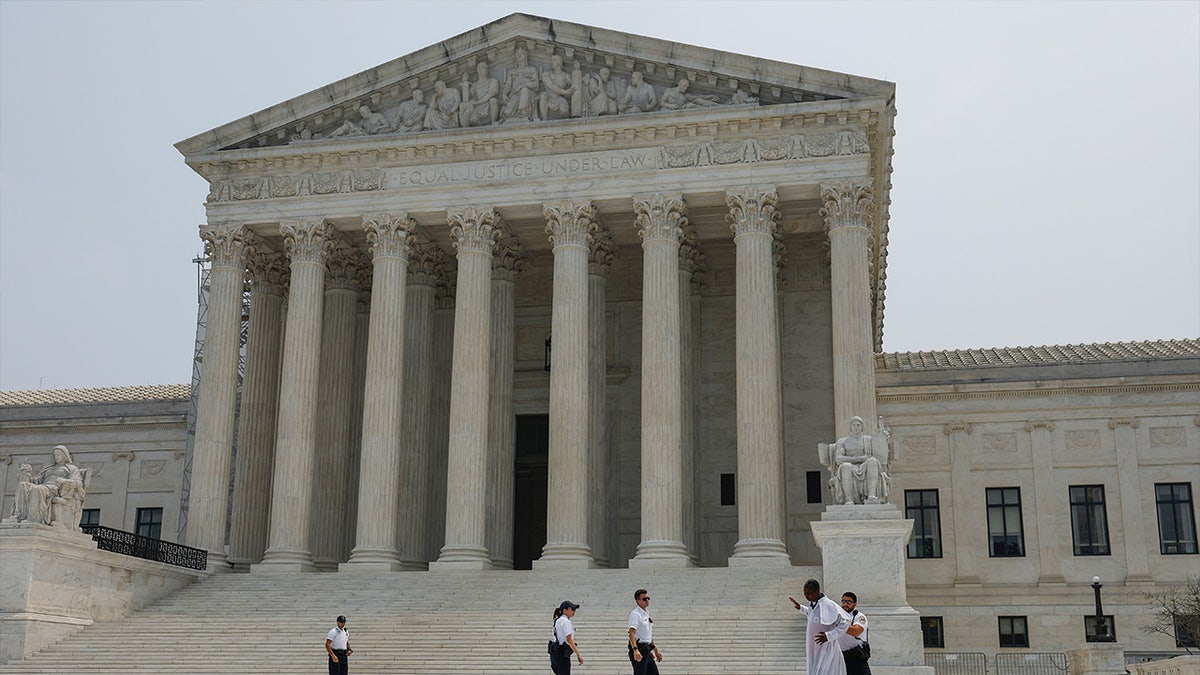Stephen A. Smith on affirmative action: The African American community was being shortchanged
ESPN host Stephen A. Smith gives his take on the significance of the Supreme Court striking down affirmative action in college admissions on 'Fox News Tonight.'
The law school applicant pool is the most diverse ever despite the U.S. Supreme Court’s ruling to ban affirmative action in college admissions.
According to the latest data from the Law School Admission Council (LSAC), the current national law school applicant pool includes more than 43% of people of color.
The data marks the highest percent on record of people of color in law school applications.
The data also shows that the number of minority applicants has grown 7% when compared with this time last year when affirmative action was still present in college admissions.
HILLARY CLINTON BLASTED FOR UNINSPRING CLASS AT COLUMBIA UNIVERSITY, FAILING TO ‘LOOSEN UP’

Students react to Supreme Court Justice Ketanji Brown Jackson speaking during the graduation ceremony for American Universitys law school at American University in Washington, D.C. on May 20, 2023. (Amanda Andrade-Rhoades/For The Washington Post via Getty Images)
The more diverse pool of law school candidates comes as the total number of law school applicants nationwide is up 4%.
According to LSAC, the number of Hispanic applicants is up nearly 9% compared with this time last year.
Black applicants increased more than 7%, while the number of Asian applicants is up more than 6%, data showed.
White applicants are also up 1% year-over-year, the LSAC said.
According to the Law School Admission Council, nearly 15% more people are registered to take the Law School Admission Test later this month than data from last year.

Law school students study in the new library at the UC Berkeley School of Law. (Paul Chinn/The San Francisco Chronicle via Getty Images)
Aaron Taylor, executive director of the AccessLex Center for Legal Education Excellence, said that despite the more diverse applicant pool, it remains to be seen if it yields a more racially diverse class this fall.
"If we see higher denial rates among applicants of color after the current admission cycle, we may then see future declines in applications from members of those groups," he said.

In a 6-3 vote, Supreme Court Justices ruled that race-conscious admissions programs at Harvard and the University of North Carolina are unconstitutional, setting a precedent for affirmative action in other universities and colleges. (Anna Moneymaker/Getty Images)
In a 6-3 decision, Chief Justice John Roberts was joined by Justices Clarence Thomas, Samuel Alito, Neil Gorsuch, Brett Kavanaugh and Amy Coney Barrett to strike down affirmative action in college admissions.
"Or a benefit to a student whose heritage or culture motivated him or her to assume a leadership role or attain a particular goal must be tied to that student’s unique ability to contribute to the university. In other words, the student must be treated based on his or her experiences as an individual—not on the basis of race," the opinion reads.
CLICK HERE TO GET THE FOX NEWS APP
"Many universities have for too long done just the opposite. And in doing so, they have concluded, wrongly, that the touchstone of an individual’s identity is not challenges bested, skills built, or lessons learned but the color of their skin. Our constitutional history does not tolerate that choice," the opinion states.
Justice Sonia Sotomayor wrote the main dissent, joined by Justices Elena Kagan and in part by Justice Ketanji Brown Jackson, who recused herself from the Harvard case due to her previous role on Harvard's Board of Overseers.
The Law School Admission Council did not immediately respond to Fox News Digital's request for comment.
Reuters contributed to this report.











































